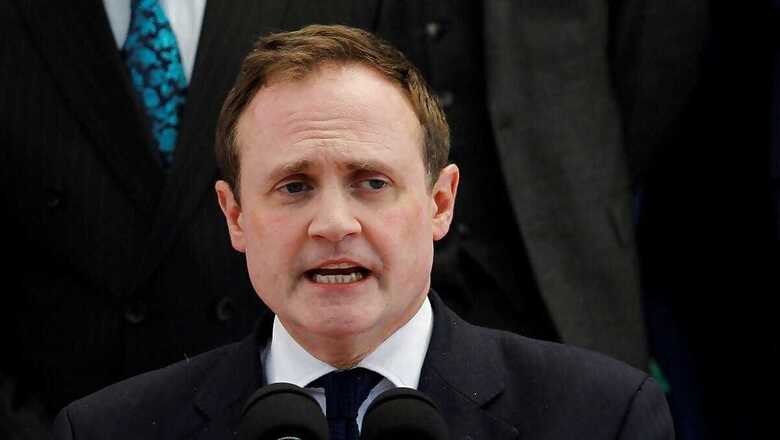
views
India’s G20 presidency has been “incredibly important” as it offered effective leadership in addressing various global challenges including that of food security, British Security Minister Tom Tugendhat said.
“It’s quite clear to me that this is the right presidency at the right time,” Tugendhat said.
Under its G-20 presidency, India has been flagging concerns of the Global South including in areas of food, fuel and fertiliser besides focusing on ensuring inclusive global growth, speedy implementation of the sustainable development goals (SDGs) and green development among others.
The British Security Minister was in India on a three-day visit primarily to attend the G20 anti-corruption ministerial meeting in Kolkata last week.
In an interview to PTI, Tugendhat, delving into India-UK bilateral ties, said there is no debate in his country about New Delhi being an “essential ally” of London.
In his remarks, the minister especially complimented India’s global initiative to encourage the consumption and production of millet and elaborated on how it can contribute to dealing with the problem of food insecurity.
At the same time, the minister criticised Russia for violating its grain deal with Kyiv that would prevent crucial grain exports from Ukraine reaching the world markets.
“We’re talking about different ways of seeing food security in many countries around the world. Now that’s increasingly important,” Tugendhat said.
“We’ve seen, sadly, Russia’s violation of the grain deal with Ukraine and that will have callous implications that the Kremlin is taking on poorer countries around the world,” he said.
“It’s a brutal decision by (President Vladimir) Putin and it is completely wrong. So having India chairing the presidency, having the presidency of the G20 right now is incredibly important,” the minister noted.
Tugendhat said India is providing leadership to the G-20 at a time when the world is facing a plethora of challenges.
“We are very focused on what we need to do as partners, which is to make sure that we’re offering the leadership to our own people, but also the support to many others around the world,” he said.
“And that’s exactly what the Indian presidency of the G20 is doing. So I must say I’m very, very grateful to your government for all that it is doing,” he said.
Asked about India facing the uphill task of building consensus on the text to refer to the Ukraine crisis in the leaders’ declaration to be adopted at the upcoming Summit of the grouping, the British minister chose not to comment.
India is finding it difficult to build consensus on the issue in view of sharp differences between the West and Russia-China combine.
Both Russia and China had agreed to the two paragraphs on the Ukraine conflict in the Bali declaration, but they backtracked from it this year creating difficulties for India.
The G-20 operates under the principle of consensus.
Almost all key meetings held under India’s G20 presidency, including those of finance and foreign ministers, could not come out with consensus documents due to opposition from Russia and China to any text referring to the Ukraine conflict.
However, Indian negotiators are confident of finding consensus on the text relating to Ukraine for the leaders’ declaration.
Asked what kind of security cooperation India and the UK are looking at in the backdrop of the global geopolitical upheaval, Tugendhat did not give a direct reply but said both the countries see the world “very similarly”.
On the ambitious India-UK trade deal, the minister said he was confident that both sides will be able to conclude it.
“I’m very hopeful. And I can tell you that officials are working on it right now. Look, we’ve got to get a deal that works for the Indian people, works for the British people,” he said.
Tugendhat said the UK is trying to get the best deal for its people and the Indian government is doing exactly the same for the Indian citizens.
“And what we need to do is make sure that we get a deal that works for all of us. But I’m confident that we can come to an agreement that does that,” he said.
Declining to give a timeline for the deal, he said: “I am confident that we can come to an agreement.” In April last year, the two sides had set a Diwali deadline for concluding the free trade agreement but the deal could not be finalised in view of differences over certain issues as well as political developments in the UK.
The India-UK relationship was elevated to a Comprehensive Strategic Partnership during the India-UK virtual summit held between Prime Minister Narendra Modi and his then British counterpart Boris Johnson in May 2021.
At the summit, the two sides adopted a 10-year roadmap to expand ties in the key areas of trade and economy, defence and security, climate change and people-to-people connections among others.




















Comments
0 comment